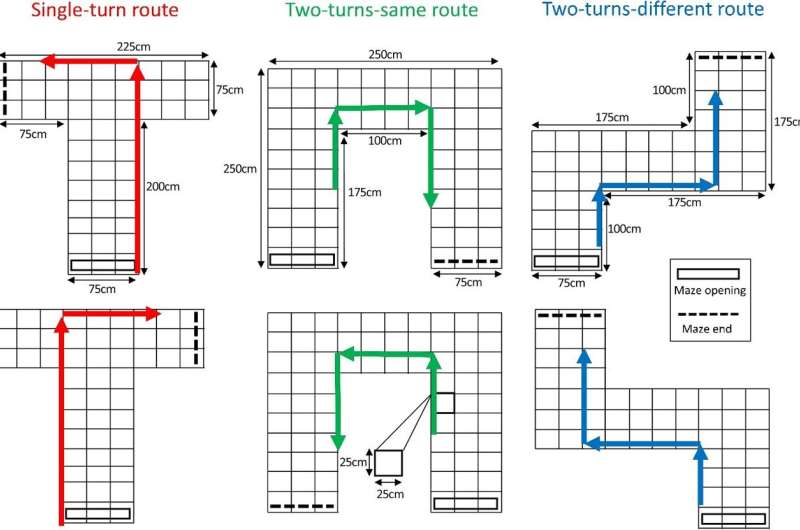This article has been reviewed according to Science X's editorial process and policies. Editors have highlighted the following attributes while ensuring the content's credibility:
fact-checked
peer-reviewed publication
trusted source
proofread
Research reveals how sighted and blind people's brains change when they learn to echolocate

New research shows that the brains of sighted and blind people adapt in a similar way when they learn to use sound echoes to understand the world without vision.
The study, led by Durham University, is the first of its kind to use MRI scans to analyze the brain activity of sighted and blind people before and after they are trained in echolocation.
Echolocation is a physiological process that allows us to understand the world around us through sound waves reflected back to the sender. It's best known in bats and marine mammals such as dolphins, but it's also used by some people who are blind or visually impaired to navigate their surroundings.
Researchers from Durham University's Department of Psychology wanted to explore whether the brains of fully-sighted people adapt to learning echolocation in the same way that the brains of blind people do. Over the course of 10 weeks, 12 blind participants and 14 sighted participants were trained in echolocation by Durham's researchers.
The adult participants performed tasks such as identifying the size and orientation of shapes, or finding their way around, using only clicking sounds and without using vision. MRI scans were conducted before and after training to determine whether any changes had taken place in the participants' brains after the ten-week echolocation training.
The scans revealed that after learning echolocation, the primary "visual" cortex part of the brain in both sighted and blind participants had reorganized and developed sensitivity to sound echoes.
Previously it was thought that such reorganization of the primary "visual" cortex would only be possible in people who are blind, and that it would require much more extensive training.
The findings suggest that similar brain plasticity principles apply in both blind and sighted people. This has positive implications for those experiencing progressive sight loss because it demonstrates that the brain adapts successfully regardless of when echolocation is learned, and regardless of how much vision one has.
The findings have been published in the scientific journal Cerebral Cortex.
Lead author Dr. Lore Thaler, Associate Professor in Durham University's Department of Psychology, said, "Our research shows that there are remarkable neuroplastic changes in sighted and blind people's brains in response to relatively short-term echolocation training.
"It shows how adaptable the brain really is, regardless of what sensory repertoire you have.
"So rather than the primary visual cortex of blind people being different to that of sighted people, we've demonstrated that our brains actually respond in a similar way when echolocation is learned.
"It shows that no matter how old you are, if you experience sensory deprivation such as the loss of sight, if you practice, the brain will adapt to learning echolocation."
The study was led by Dr. Lore Thaler and Dr. Liam Norman from Durham University, and co-authored by Dr. Tom Hartley from the University of York.
More information: Liam J Norman et al, Changes in primary visual and auditory cortex of blind and sighted adults following 10 weeks of click-based echolocation training, Cerebral Cortex (2024). DOI: 10.1093/cercor/bhae239



















